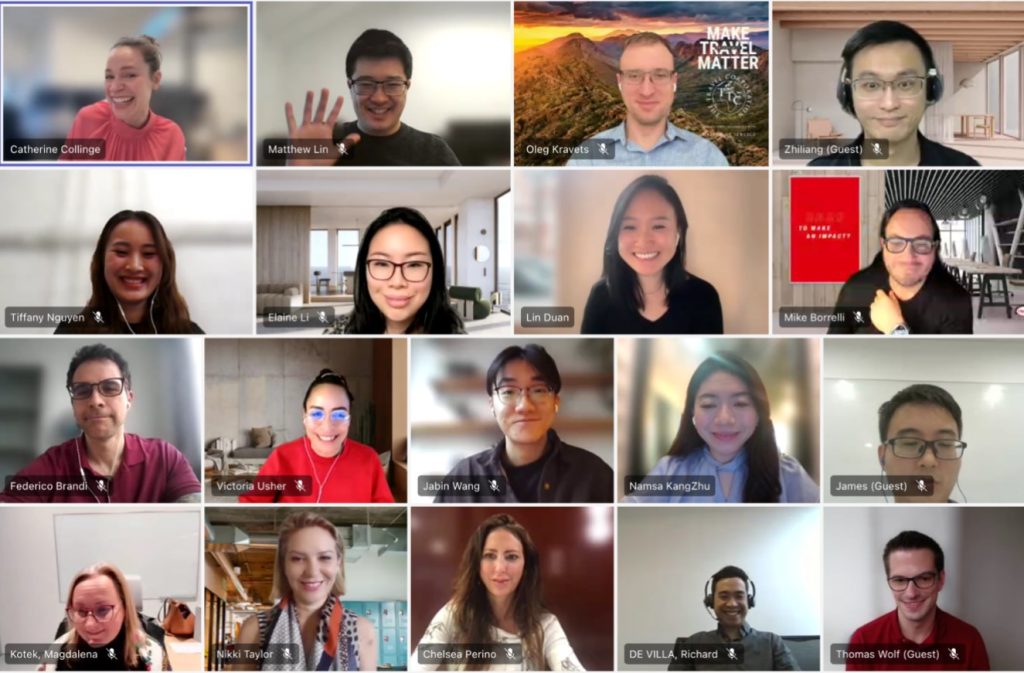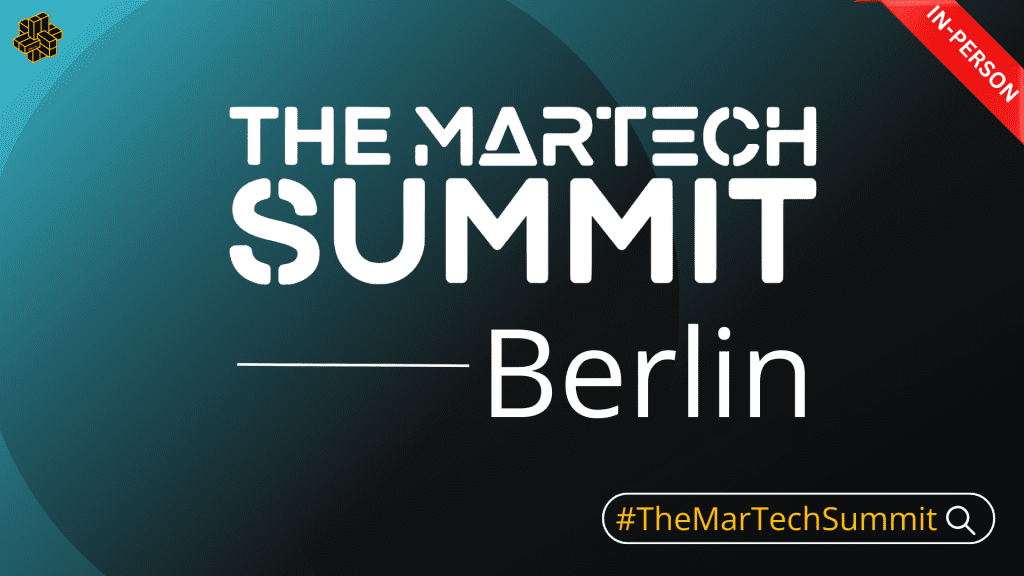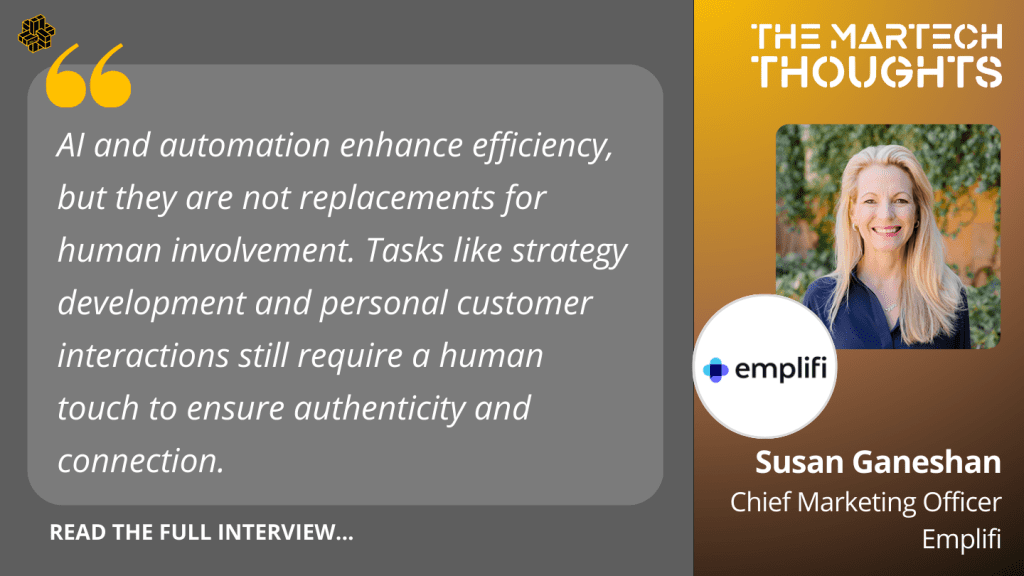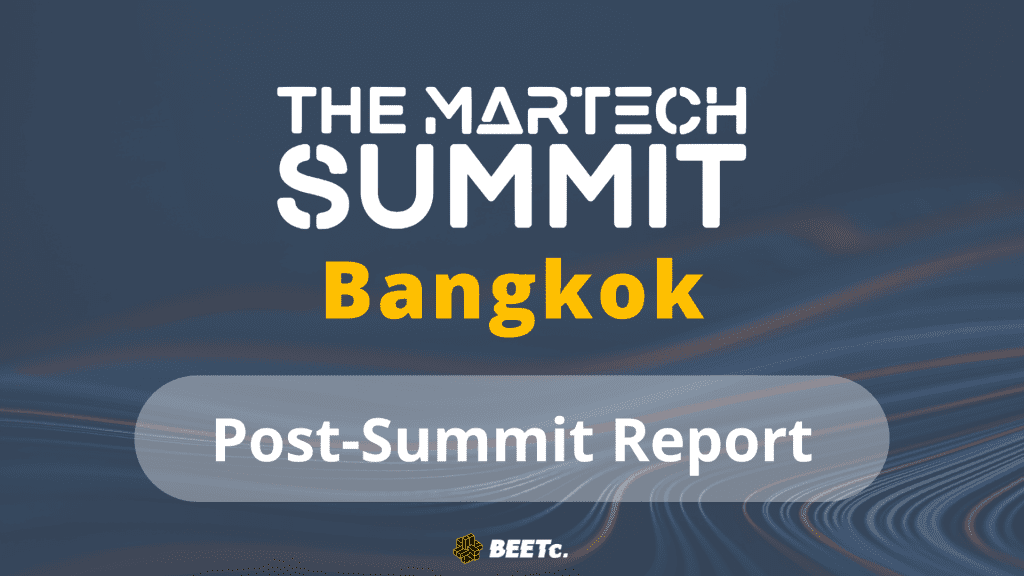On Thursday 25th January, marketing and tech visionaries came together for an Executive Virtual Roundtable: Advisory Board Update – the first of 2024! With 25 people in attendance, the meeting was nothing short of insightful.

Attendees shared their perspectives on what MarTech teams should know, how their companies are adjusting to the rise of AI tools, the KPIs they pay attention to and observations of impressive MarTech ideas over the past year. Noteworthy points discussed during the board meeting are summarised below.
????Discussion Highlights:
Primary Focus for 2024:
1. As we are a few weeks into 2024 what is the primary challenge or improvement you are focusing on and would like to see change for your marketing team (or your work) in the next couple of months?
The key insight from the conversation is that the primary challenge or improvement focus for the participants in the discussion is related to budget constraints, especially in the context of the real estate industry. The industry is still grappling with the lingering impacts of COVID-19, and there is a need for innovative strategies to maintain freshness in marketing channels and content with limited resources.
Oleg Kravets shares insights into developing a comprehensive business performance dashboard with five key indicators, aiming to provide the CEO with a tool to assess business performance at a glance. The challenge involves incorporating predictions and refining the tool to enhance its accuracy.
Victoria Usher discusses the challenge of unifying a global organization’s marketing efforts, emphasizing the need for consistent metrics and a unified voice. She also highlights the importance of re-evaluating and adjusting strategies due to external factors like COVID-19.
Thomas Wolf touches upon the challenges faced by tech start-ups entering the Asian market and the importance of finding the right market fit. He also mentions the need to pivot strategies based on changing circumstances.
Patrick Kelly discusses the challenges faced by ITV, particularly in the context of the evolving streaming landscape and competition with global tech giants. He emphasizes the aggressive investment in measurement solutions to demonstrate effectiveness to advertisers and anticipates budget constraints in the future.
Overall, the common theme across the insights is the need for adaptability, innovation, and effective resource management in the face of external challenges and uncertainties.
Valuable Metrics and KPIs:
2. Which metrics and KPIs do you consider most valuable for assessing the success of your MarTech initiatives?
This discussion emphasized the need for a holistic evaluation, incorporating various metrics such as revenue, employee experience, and customer-centric KPIs.
These include:
Balanced Metrics: The conversation underscores the significance of balancing short-term ROI metrics with broader, customer-centric KPIs. While revenue remains a crucial metric, there is a call for a more strategic approach that considers long-term value, employee experience, and customer satisfaction.
Employee Experience: The employee experience is highlighted as a critical factor in the success of MarTech initiatives. Efficient onboarding, reduced firefighting, and improved workflow contribute to a positive experience, impacting overall productivity and effectiveness.
Strategic Evaluation: Beyond traditional ROI, the focus is on strategic evaluation, encompassing factors like user adoption, acceptance, training, and usage. This approach ensures that the MarTech implementation is not just about achieving short-term gains but is embedded in the organization’s long-term strategy.
Customer-Centric KPIs: The discussion suggests looking beyond immediate gains and considering customer-centric KPIs such as organic retention and customer lifetime value. These metrics provide a more comprehensive view of the MarTech impact on customer relationships and overall business sustainability.
End-to-End Strategy: A call for an end-to-end strategy is emphasized, highlighting the need for a comprehensive plan that considers the entire lifecycle of MarTech initiatives. This includes factors such as governance, usage, and adoption, ensuring sustained value over time.
In summary, the key insight revolves around the multifaceted evaluation of MarTech success, recognizing that it extends beyond immediate financial metrics to encompass employee experience, strategic alignment, and long-term customer value. The holistic approach aims to ensure that MarTech initiatives contribute not only to short-term gains but also to the overall health and resilience of the organization.
Impressive MarTech Concepts:
3. What innovative concepts or ideas in MarTech have impressed you the most over the last 12 months?
From the conversations in each room, we heard that it is the widespread adoption and appreciation of generative AI, particularly tools like ChatGPT. The participants mentioned significant benefits, such as substantial reductions in copywriting efforts, cost savings, and enhanced content generation capabilities. This technology has proven valuable for lean teams and has been used as a brainstorming partner, aiding in tasks like translations across multiple languages. Additionally, there is a shared enthusiasm for the advancements in machine learning operations (ML Ops) and the democratization of AI tooling, making it more accessible and manageable for teams with varying levels of expertise. The conversation reflects an overall positive sentiment towards these innovations in the MarTech space over the last 12 months.
MarTech Training Resources:
4. Does your organisation have MarTech training resources? If so, what is included?
The key insight from the conversation is the importance of having a well-defined roadmap and training program when implementing MarTech tools within an organization. The participants emphasized the need for a structured approach, clear milestones, and a framework to evaluate success at each stage of the process. They also highlighted the challenges of predicting success criteria and the importance of building a culture of rigor within the organization.
Additionally, Federico shared the use of Atlassian’s Confluence as a tool to create a centralized database for internal training materials, documenting processes, roadmaps, KPIs, and tool-specific information. This highlights the significance of leveraging internal resources to supplement the often limited training materials provided by external MarTech vendors.
Overall, the discussion underscored the complexity of MarTech implementation, emphasizing strategic planning, adaptability to changing scenarios, and continuous evaluation of success metrics.
The advisory board meeting provided valuable insights into the challenges and developments in the fast-moving world of MarTech.
A big thank you to our board members for joining us and providing their strategic expertise. Looking forward to seeing everyone in our next board meeting!
Advisory Board Members:
- Chelsea Perino, Managing Director, Global Marketing & Communications at The Executive Centre
- Federico Brandi, Chief Marketing Officer at Roojai
- James Huang, Head of Digital Marketing Technology at NE Digital
- Jessie Chong, Marketing Director, SEA at Trend Micro
- Magda Kotek, Chief Marketing Officer – Asia Pacific & Global Distribution Enablement COE at Invesco Asia Pacific
- Mike Borrelli, Global Functional Lead & Sr. Product Owner – Marketing Technology – Activation Platforms at Henkel
- Neha Dadbhawala, Head of MarTech at Seek Asia
- Nikki Taylor, Marketing Growth Strategy Director, AMEA at UPS
- Oleg Kravets, Global Head of Data & Analytics at The Travel Company
- Patrick Kelly, Head Of Digital at ITV Commercial
- Richard De Villa, Marketing Director, UK and Nordics at Club Med
- Thomas Wolf, Mentor at German Accelerator
- Victoria Perea-Usher, Vice President, Marketing Communications at JCB International (Europe) Ltd.
- Zhiliang Li, Former Head of CRM at Zalora Group
Thank you again
Stay tuned for more to come by following our social media accounts and joining The MarTech Community on Slack!
Team BEETc
















